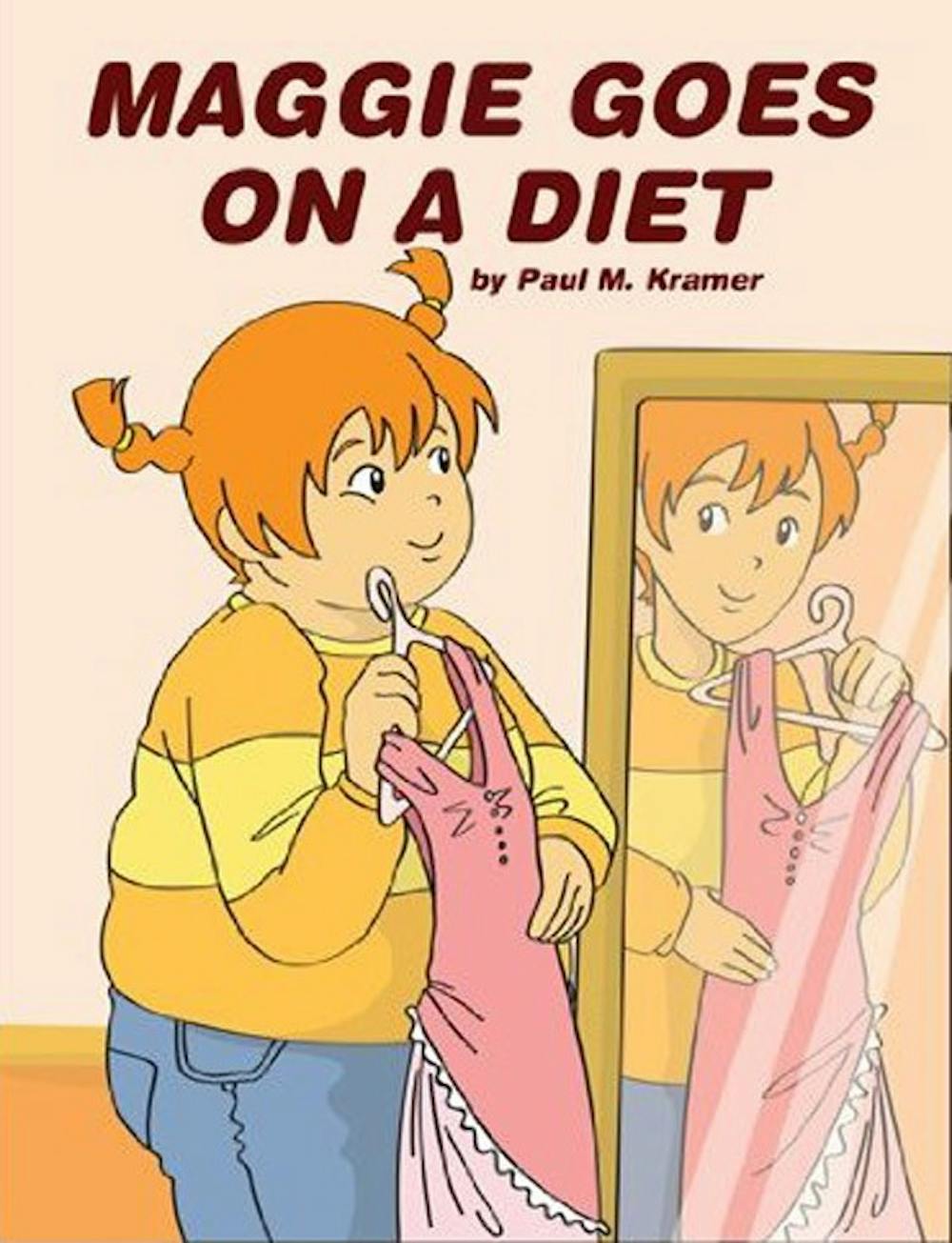As the month of October rolls around, young children’s excitement dramatically escalates with the arrival of endless amounts of Halloween candy to local grocery store shelves. Yet, while boys and girls indulge in 5-pound bags of sugary sweets, book shelves will be stocked with a less favorable treat.
Next month marks the release of Paul Kramer’s controversial children’s novel, “Maggie Goes on a Diet,” the transformational tale of a continually mocked overweight preteen girl who, through proper diet and exercise, becomes the school’s soccer star.
As anyone could easily predict, this obvious acknowledgement of childhood obesity has struck a chord among concerned parents who stress their children’s sensitivity to the exposure of such literary material.
Perhaps there is no correlation to the release of this polemical piece of literature and the nationally celebrated holiday which practically encourages children to pack on those extra unnecessary calories. However, to a media-conscious individual such as myself, the timing of this release does not appear to be merely coincidental.
Sure, Kramer urgently presses the promotion of healthy diet and exercise to cushion the blow of this overly veracious book and defend him from the masses of furious parents who interpret such literature as an insult to their parental skills, but at least he is finally saying what we are all thinking.
As humans, or as Americans more specifically, we live in a world in which the concepts of body image are teeming with outrageous contradictions. We are subliminally subjected to various ad campaigns every day that point out a thousand and one things “wrong” with our bodies, yet we become irate when an author openly acknowledges childhood obesity in one of his books.
After first hearing about the upcoming release of “Maggie Goes on a Diet,” I became immediately offended that a credited author would so bluntly subject children to such material, a stance similar to that of several other individuals. I mean, seriously? Attacking preteen girls about their body composition? Talk about insensitive, as if being a teenager is not difficult already.
Despite the fury instilled in me by this children’s novel, I decided to give Kramer the benefit of the doubt and further investigate this taboo topic of obesity. After reading through countless websites that acknowledged our misperceptions with body image while bright blaring ads flashed easy diet tips all over the article’s margins, I started to come to a slightly different conclusion.
We all know that media and society have established this craze with being stick-thin, but I never realized our obsession with lithe models was so severe. According to the Media Awareness Network website, 20 years ago, the average model weighed 8 percent less than the average woman — but today’s models weigh 23 percent less. Advertisers believe that thin models sell products.
Yet, why are we so adamant about ruthlessly attacking an author who has simply written down our negative perception of obesity and published it when we all know our society determines being thin is equivalent to being attractive?
So until our media outlets ban these ad campaigns for Alli and Dexatrim and stop glamorizing thin models as a proper body image, how can we justify removing the same concept from literature? Unless something is willing to change, “Maggie Goes on a Diet” is definitely not the first piece of mass media to influence poor self-image in children, and it certainly will not be the last.








